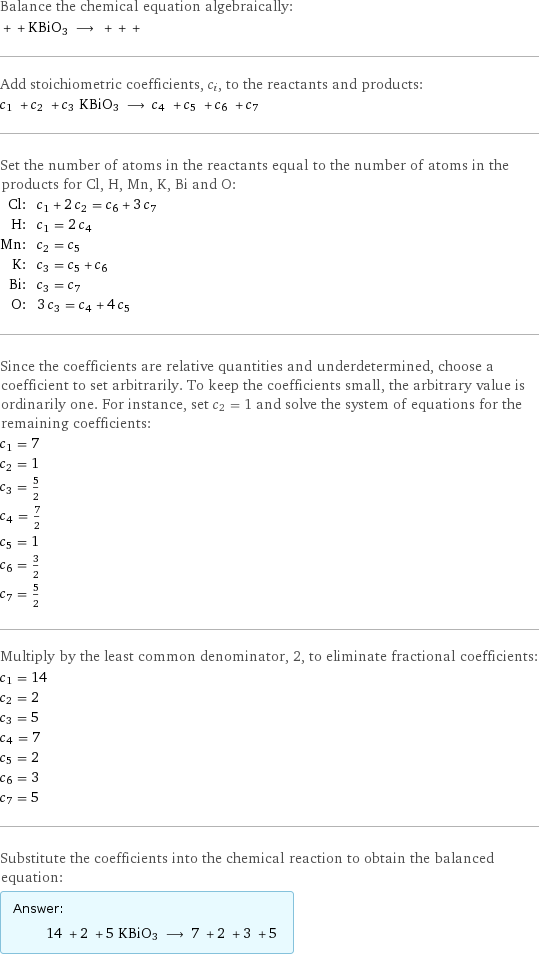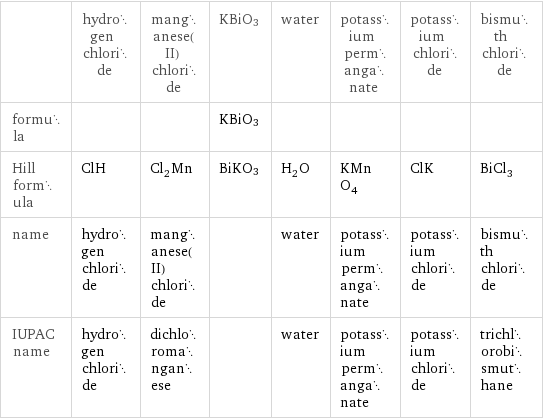Input interpretation

hydrogen chloride + manganese(II) chloride + KBiO3 ⟶ water + potassium permanganate + potassium chloride + bismuth chloride
Balanced equation

Balance the chemical equation algebraically: + + KBiO3 ⟶ + + + Add stoichiometric coefficients, c_i, to the reactants and products: c_1 + c_2 + c_3 KBiO3 ⟶ c_4 + c_5 + c_6 + c_7 Set the number of atoms in the reactants equal to the number of atoms in the products for Cl, H, Mn, K, Bi and O: Cl: | c_1 + 2 c_2 = c_6 + 3 c_7 H: | c_1 = 2 c_4 Mn: | c_2 = c_5 K: | c_3 = c_5 + c_6 Bi: | c_3 = c_7 O: | 3 c_3 = c_4 + 4 c_5 Since the coefficients are relative quantities and underdetermined, choose a coefficient to set arbitrarily. To keep the coefficients small, the arbitrary value is ordinarily one. For instance, set c_2 = 1 and solve the system of equations for the remaining coefficients: c_1 = 7 c_2 = 1 c_3 = 5/2 c_4 = 7/2 c_5 = 1 c_6 = 3/2 c_7 = 5/2 Multiply by the least common denominator, 2, to eliminate fractional coefficients: c_1 = 14 c_2 = 2 c_3 = 5 c_4 = 7 c_5 = 2 c_6 = 3 c_7 = 5 Substitute the coefficients into the chemical reaction to obtain the balanced equation: Answer: | | 14 + 2 + 5 KBiO3 ⟶ 7 + 2 + 3 + 5
Structures

+ + KBiO3 ⟶ + + +
Names

hydrogen chloride + manganese(II) chloride + KBiO3 ⟶ water + potassium permanganate + potassium chloride + bismuth chloride
Chemical names and formulas

| hydrogen chloride | manganese(II) chloride | KBiO3 | water | potassium permanganate | potassium chloride | bismuth chloride formula | | | KBiO3 | | | | Hill formula | ClH | Cl_2Mn | BiKO3 | H_2O | KMnO_4 | ClK | BiCl_3 name | hydrogen chloride | manganese(II) chloride | | water | potassium permanganate | potassium chloride | bismuth chloride IUPAC name | hydrogen chloride | dichloromanganese | | water | potassium permanganate | potassium chloride | trichlorobismuthane